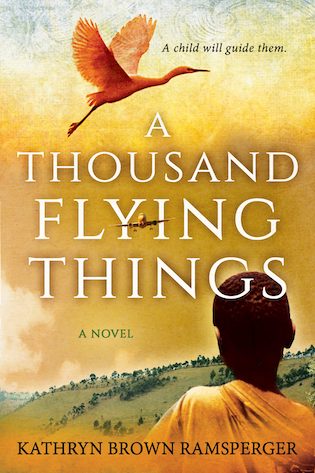Title: The Winner Takes It All
Series: Virginia Is for All Lovers, Book Two
Author: Ivy L. James
Cover Art: Neimy Kao
Cover Design: Jaycee DeLorenzo
Publisher: NineStar Press
Release Date: 10/29/2024
Heat Level: 3 - Some Sex
Pairing: Female/Female
Length: 64900
Genre
Contemporary, contemporary, romance, rivals to lovers, bisexual, lesbian, interracial/intercultural, humorous, competition/competitive leads, athletics, gym, tennis, family issues, grieving, anxiety attacks

"After surviving the car accident that killed her parents, Yelena keeps a tight control over her life. She holds success close and any possible relationships at arm’s length; she certainly can’t let any potential partners close enough to lose them too.
Her competitive spirit sends her to the top of her gym’s leaderboard, or rather, to a tie for first place. Tied with her least favorite person at the gym. With a 1,000-dollar prize and her pride at stake, Yelena will do whatever it takes to beat out her rival, Embry. If only Embry weren’t so damn pretty.
Embry needs to be the best. Despite her wall of diplomas and awards, it’s the gym leaderboard she has her eye on lately, but her number-one place has somehow become tied for first. Unacceptable. Worse, when her tennis partner gets hurt, the only person who can step in for the upcoming pairs competition is the last person she wants on her team.
Yelena and Embry begrudgingly team up for the tennis competition. As they spend time together, though, they find they’re more similar than different, and deeper feelings blossom. But will their fears—and the leaderboard—get in the way of what they both truly want?
The Winner Takes It All is a rivals-to-lovers sapphic romance."
The Winner Takes It All Excerpt
Ivy L. James © 2024
All Rights Reserved
In Which Their Paths Cross Without Them Knowing It
Yelena Montalban glared at the dark clouds overhead before slipping into her white Subaru hatchback. “Do not storm on me,” she told the skies as she started her car. “Don’t you dare.” She could’ve skipped the gym and headed straight home, but a good workout would give her some endorphins. Besides, the weather channel app on her phone promised the storm would pass right over her little Virginia town.
Still, her white-knuckled grip on the steering wheel didn’t let up as she eased out of the high school teachers’ parking lot and onto the main road. “Don’t storm, don’t storm, don’t storm,” she chanted under her breath. Her nails dug into the leather. But the clouds remained benign, even as they followed her to the local gym. Maybe the weather channel was right after all. She tossed her workout bag over her shoulder and trotted inside.
The lobby held the welcome station and a smoothie bar. The main floor of the gym opened to a wide-open room, with a long free-weight section along the wall and three parallel rows of ellipticals, bikes, and treadmills. A thirty-minute circuit area had been blocked off in the far back, and glass-walled workout classrooms took up the other side. With tennis and basketball courts and the track upstairs, and the pool downstairs, it was a massive gym, especially for such a rural area, and she was grateful for it every day.
“Welcome to Riverside Fitness—oh, hey, Yelena!” The greeter beamed and waved at her. “How’s it going?”
Yelena forced a carefree brightness into her voice and smile as she scanned her membership tag. “Doing awesome. How ’bout you?”
“Hangin’ in there.” He inclined his head toward the row of classrooms. “Have fun, and don’t forget to log your visit!”
Yelena gave him a thumbs-up and strode past the welcome station toward the locker rooms. On her way, she stopped to look up at the screen on the wall that showed the participation leaderboard. It updated once a day, at eight in the morning, so it wasn’t fully current, but close enough. The gym awarded points for everything—customer referrals, classes attended, even social media interaction. And the prize at the end of the competition? One thousand dollars in cold, hard cash.
She checked her position in the ranking.
EMBRY 185
YELENA 185
KYLE 135
JESS 130
DYLAN 125
Yelena scowled.
Sure, Embry was cute, but she was also a pain in Yelena’s ass. How were they still tied for first? Well, maybe today’s spin class would push Yelena up to number one.
In her favorite changing stall, she donned a sports bra, tank top, and biker shorts. She pulled her strawberry-blonde hair into a high ponytail, removed her necklace with her parents’ wedding rings, tucked her purse and gym bag into a locker, and headed for Classroom Two. The wood floor gleamed under the fluorescent lights. No windows meant no visuals of the impending storm, allowing Yelena to breathe again. The familiar spin instructor, Hanna, was already at the front of the room; because the too-loud music discouraged conversation, Yelena only waved her fingers at her and picked the bike at her preferred spot. First row, front and center.
As the music blared from the speakers, Hanna turned on her mic and encouraged everyone to find their places so class could start. Yelena stretched but kept an eye on the door. She and Embry often attended the same classes; would she show up at this one?
Hanna announced the beginning of class with no sign of Embry. Somehow both pleased and disappointed, Yelena climbed onto her bike.
The bass thudded in her chest. Her heartbeat pounded in her ears. As her legs pumped, she leaned into the exercise, letting it wash her thoughts away. She closed her eyes and simply felt. The power. The freedom. The endorphins swept over her, enveloping her in a high. Sweat slicked her face and body. Her muscles ached, but she pressed on, pushing herself, knowing she had more to give. Her lungs and legs burned beautifully.
Too soon, though: “And now it’s time for cooldown!” Hanna called out. “Good job, everyone—you made it through the workout!”
Yelena slowed to a more reasonable pace. A sense of accomplishment tingled under her skin. Panting, she followed Hanna’s instructions for the cooldown period. After wiping down her bike, she stopped to say bye to Hanna on the way out. “Good class today!”
Hanna beamed. “You did great! Really pushed yourself. Good job!” She high-fived Yelena, who soaked up the praise. “Too bad Embry couldn’t join us today though. Where is she?”
Yelena crinkled her nose. “I have no idea. I’ve never talked to her outside the gym.”
“Oh. My bad. Y’all are always in the same classes, so I figured it was intentional.”
“Nope.”
They chatted for a few more minutes, and then Yelena left the classroom. Her phone was in the locker room, and she needed to log her class time in the online leaderboard tracker.
Yelena froze at the loud crack of thunder. In the windows, lightning flashed outside. Her blood running cold, Yelena gritted her teeth and stalked away.
The thunder shook the building, and Yelena burst into the locker room, almost knocking into another woman. “Sorry,” she muttered, but she didn’t stop. She rushed to her changing stall and locked herself inside. Pressing her back against the wall, Yelena interlocked her fingers around the nape of her neck and ducked her head between her knees. Her breaths came too fast even as she tried to slow them, time them. The high from spin class was long gone.
I’m safe in here. I’m safe.
Yelena had had a therapist once, many years ago now. The therapist had been more concerned with being right than with helping her, so she’d pretty much let him talk his way through the mandated sessions. Then, when she’d finally been free of him, she heaved a sigh of relief and gone right back to her tried-and-true methods such as “hiding in closets” and “never talking about her feelings.”
Yelena hated that she still, at twenty-eight years old, had these anxiety attacks over storms. It was stupid. It was childish. But whenever a storm threatened, she reverted to that twelve-year-old girl, trapped in an overturned car with two dead parents in the front seats. She couldn’t go home either. Couldn’t drive in the lashing rain, cracking thunder, startling lightning. Couldn’t put herself in that danger.
But her roommate, Alexandria Hudson, knew the basics of her storm anxiety, and maybe she could—
The phone buzzed in Yelena’s pocket.
She fumbled for it with trembling hands and eventually managed to bring up the incoming text.
Alex: Are you still at the gym?
Yelena: Yes. In the locker room
Alex: Do you want me to come sit with you?
Yelena: You don’t have to if you’re busy
Alex: On my way.
So, Yelena huddled, sweaty in a way that had nothing to do with the exercise class she’d just finished, and tried desperately to drown out the sounds of the storm thrashing the building as she waited for her roommate to show up so she wouldn’t be alone.

Ivy L. James wrote her first story on Post-it notes as a child. Since then, she has graduated to regular paper and enjoys writing inclusive, heartwarming romance as a way to counterbalance the negativity in the world. She lives in Maryland with her wife and their corgi, cat, and two snakes.
Giveaway
One lucky winner will receive a $50.00 NineStar Press Gift Code!
\


















